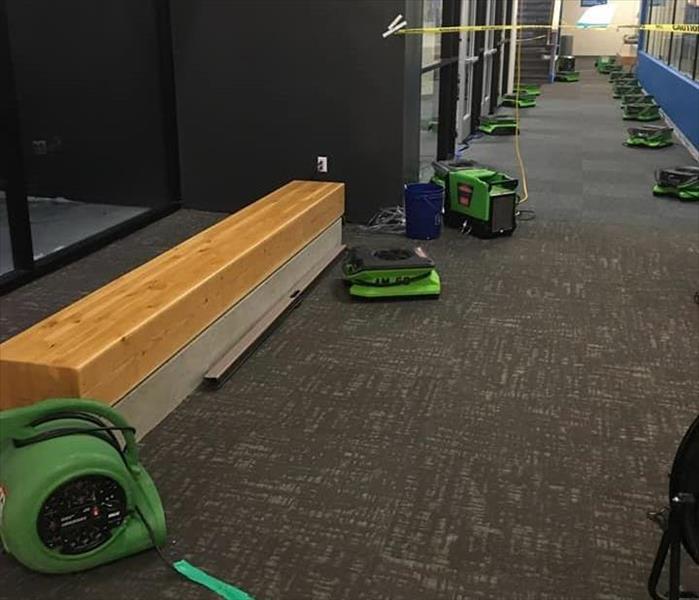High school drama
1/1/2019 (Permalink)
Thunder Ridge High Schools pipes froze and broke! Bursting water pipes can be a major concern when the winter weather temperature drop to below freezing.
When water freezes, its molecules crystalize into an open hexagonal form, which takes up more space than when the molecules are in their liquid form. Then the water molecules expand as they freeze.
When the ice then expands, it pushes the water towards the faucets and in turn causes a lot of pressure to build between the ice faucet and the faucets. Eventually the pipe will burst under the pressure leaving a huge mess behind.
There are ways to try and make sure this disaster doesn’t happen. The consumer report website gives these tips…
Keep garage doors closed, especially if there are water supply lines in the garage.
Open kitchen and bathroom cabinet doors to allow warmer air to circulate around the plumbing. (If you have small children, be sure to remove any harmful cleaners and household chemicals.)
Let the cold-water drip from a faucet served by exposed pipes. Running water through the pipe—even at a trickle—helps prevent pipes from freezing.
Keep the thermostat set to the same temperature during day and night. Again, during a cold snap is not the time to set back the thermostat at night to save a few bucks on your heating bill.
If you plan to be away during cold weather, leave the heat on in your home, set to a temperature no lower than 55° F.
For the long term, add insulation to attics, basements, and crawl spaces. Insulation will maintain higher temperatures in those areas. And to prevent drafts, seal cracks and openings around windows, doors, and at sill plates, where the house rests on its foundation.
If you happen to have a Fire, Water, Mold or asbestos disaster give SERVPRO a call at (208) 523-5365





 24/7 Emergency Service
24/7 Emergency Service
